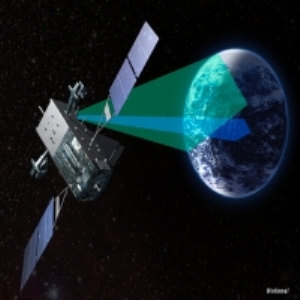The U.S. Air Force has awarded Lockheed Martin a $284.4 million fixed-price contract to procure long lead parts for the fifth and sixth Geosynchronous Earth Orbit (GEO) satellites in the Space Based Infrared System (SBIRS) missile warning constellation.

Featuring a mix of GEO satellites, hosted payloads in highly elliptical earth (HEO) orbit, and associated ground hardware and software, the SBIRS program delivers resilient and improved missile warning capabilities for the nation while simultaneously providing significant contributions to the military's missile defense, technical intelligence and battlespace awareness mission areas.
Lockheed Martin previously received a contract to complete non-recurring engineering activities for GEO-5 and 6 and procure select long lead spacecraft parts enabling supplier production lines to deliver the lowest possible price for each component. This next phase authorizes the purchase of the remaining long lead spacecraft components. A final contract for full production under fixed-price terms will be awarded at a later date.
“This contract award is a testament to the importance of the SBIRS program and reinforces the government’s confidence in our ability to produce these vital satellites efficiently going forward,” said Jeff Smith, vice president of Lockheed Martin’s Overhead Persistent Infrared (OPIR) mission area. “As we produce follow on SBIRS assets, we aim to continually reduce the cost and cycle time of each space vehicle to ensure we deliver critical and resilient infrared surveillance capabilities to the nation at the best value to the government.”
Lockheed Martin’s SBIRS contracts include four HEO payloads, four GEO satellites, and ground assets to receive, process, and disseminate the infrared mission data. Under the new contract, the team will procure long lead parts for the fifth and sixth GEO satellites.
Two HEO payloads and the first geosynchronous (GEO-1) satellite have already been launched. GEO-2 is scheduled for launch in March of 2013.
The SBIRS team is led by the Infrared Space Systems Directorate at the U.S. Air Force Space and Missile Systems Center. Lockheed Martin is the SBIRS prime contractor, Northrop Grumman is the payload integrator. Air Force Space Command operates the SBIRS system.